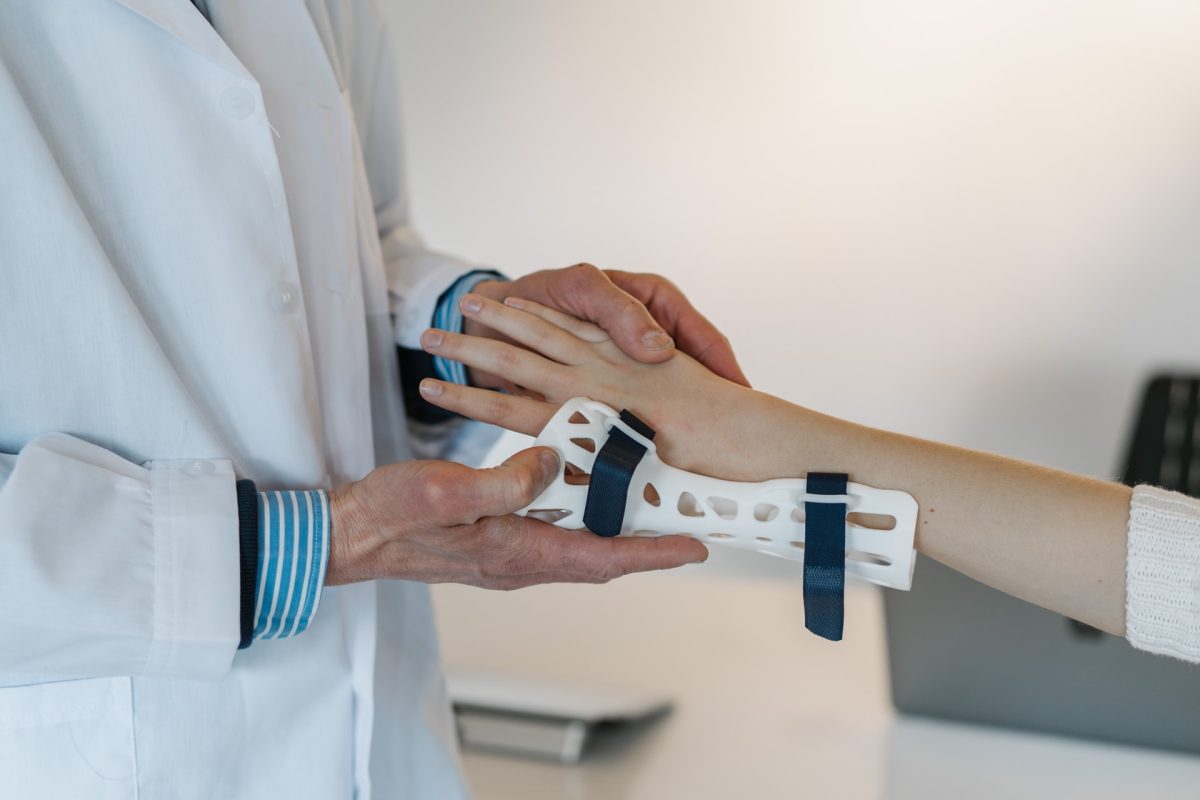People who suffer from carpal tunnel syndrome want to avoid surgery at all costs. If surgery is eventually necessary, some treatments may be able to manage symptoms to hold off an invasive procedure.
One of the most debilitating symptoms people with carpal tunnel syndrome face is pain. Pain can make it difficult for you to do your daily tasks and concentrate on the things that matter. If you’re in constant pain, you may feel frustrated, which means you should be making pain relief your priority.
You can try to alleviate your pain through different medications. You can try CarpalAID tunnel medication, which is non-invasive. Alternatively, you can try some of these.
Over-the-counter pain meds
You probably have a few of these at home. They’re called NSAIDs and they are medications like ibuprofen or Advil. These medications provide short-term relief by reducing swelling and pain. They’re easy to acquire since you don’t need a prescription and are affordable.
You can ask your pharmacist for recommendations. They’ll be able to help you find the right brand and medication for you based on your needs and symptoms.
The main side effect of this kind of medication is that it’s not a medication that can be taken long term. They can cause things like bruising, ulcers and bleeding issues. They can also relieve pain to the point where the patient no longer thinks they have carpal tunnel. If you continue to do all the activities you did before your diagnosis just because you’re feeling better, you’ll still worsen the condition.
Pyridoxine
This is a medication that can help promote nerve, blood cell and skin health. The downside of this medication is that a large dose is required to relieve the symptoms of carpal tunnel syndrome. It’s typically used to treat peripheral nerve damage, but it could help eliminate the nerve pain you’re experiencing. Talk to your doctor about pyridoxine to see if it’s a good choice for you since a prescription is needed.
When taking pyridoxine, you might experience low levels of folic acid. Make sure you let your doctor know if you experience any other symptoms, like numbness and decreased sensation or appetite loss. This could mean that you’re experiencing nerve damage, which can be caused by this medication.
Diuretics
Your body’s water content can increase your wrist’s swelling due to water retention. A diuretic helps reduce this water retention by excreting more water and salt from the body than before consumption. It must be taken every day though and it may not alleviate all of your pain depending on the severity of your symptoms.
Learn about some major side effects before taking these.
Dehydration is one of the most common side effects people experience and it can be dangerous. Make sure you drink plenty of water. Diuretics also remove the electrolytes from your body, so it may be a good idea to take some extra supplements with your doctor’s permission or drink a sports drink with electrolytes. Minor side effects include weakness, dizziness, and low blood pressure.
To combat these symptoms, try changing your diet.
Corticosteroids
This is probably the second most common treatment option for those suffering from carpal tunnel syndrome. These are anti-inflammatory medications that can be injected into the wrist. It will work immediately to reduce swelling and eliminate your pain.
Just like everything else on this list, it won’t cure your carpal tunnel syndrome. It can only help reduce the symptoms you experience on a daily basis and you will need to have several injections over the course of the year.
Depending on the kind of corticosteroid you’re being treated with, you could experience a wide range of symptoms such as acne, skin thinning, high blood pressure, weight gain, and behavioral changes. While these aren’t common in corticosteroid injection, they can occur. Make sure you speak to your doctor if you notice any changes to your health.
Anticonvulsants
Although they’re mainly used to help epileptic patients, these can be an effective treatment method for reducing nerve pain. These are usually prescribed when a person’s carpal tunnel syndrome is so severe, that they’re not just in pain, they’re in agony. These won’t cure carpal tunnel syndrome; they will only help with the discomfort that’s involved with the issue.
These kinds of medications should be heavily monitored by yourself and your doctor because they can come with severe side effects. Patients can experience dizziness, confusion, loss of coordination, speaking problems and vision or eye problems. If you experience any of these symptoms, your doctor may have you stop taking them.
What if Pain Medications Don’t Work?

You’re not without options. Surgery, as much as you want to avoid it, can be a long-term solution to your carpal tunnel. Most people find immediate relief in symptoms whereas others experience symptom relief within days.
Recovery time is minimal, stitches come out within a few weeks and by week six, most people are fully recovered. Another positive is that it can be done on an outpatient basis, so you don’t have to go under general anesthesia or stay at the hospital overnight.
No one wants surgery, but if nothing else is working for you, consider an invasive procedure with your doctor’s guidance. Put your health and wellness first.
Carpal tunnel syndrome can make you feel as though you can’t do all the things you want to do because of its symptoms. Although these medications won’t fix the problem, they can make it easier for you to deal manage the condition.
Making sure you get relief from your pain is something that’s important to your doctor. If your carpal tunnel symptoms are getting worse, talk to your doctor about your options. They’ll be able to look at your existing medications and determine what pain-relieving medications can be combined into your treatment plan. If those don’t work, don’t be surprised if your doctor recommends surgery to fix the problem. Regardless of your journey to pain relief, your doctor will help you get there safely.




